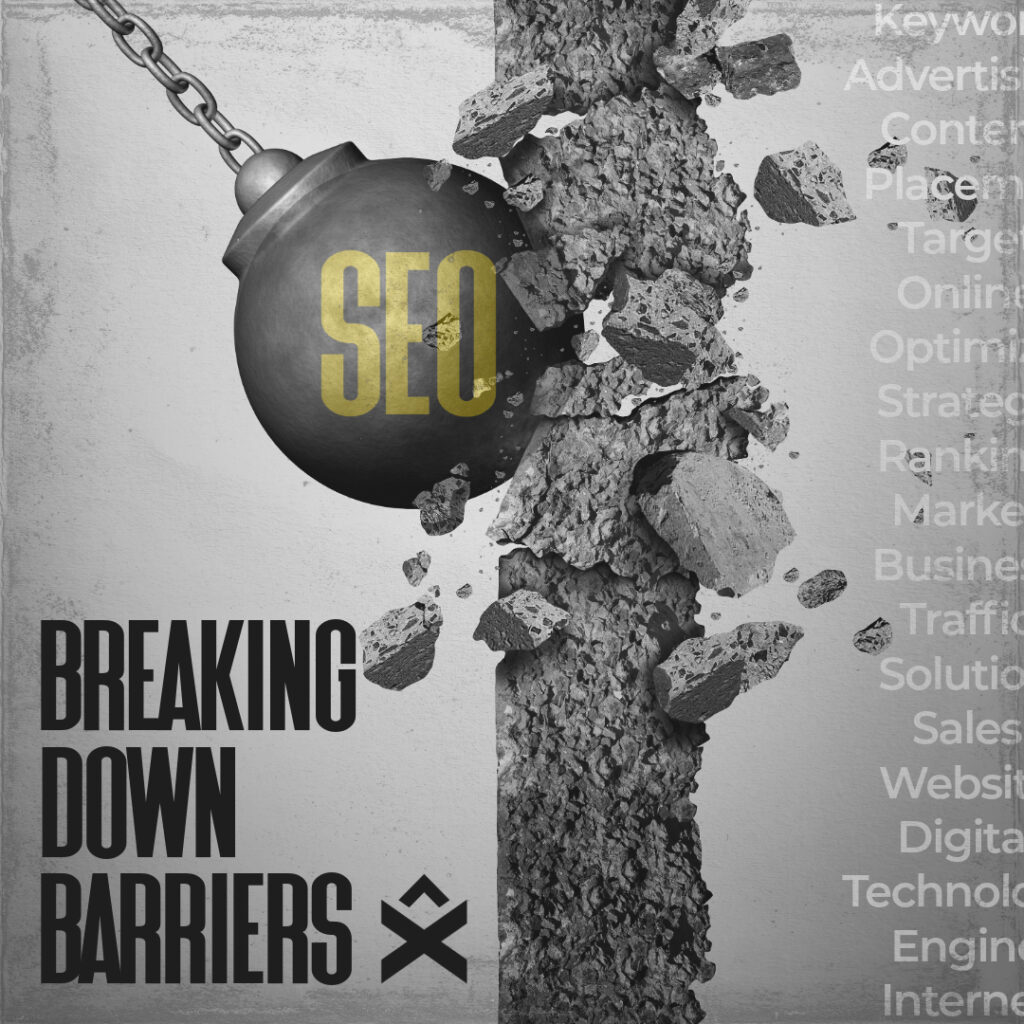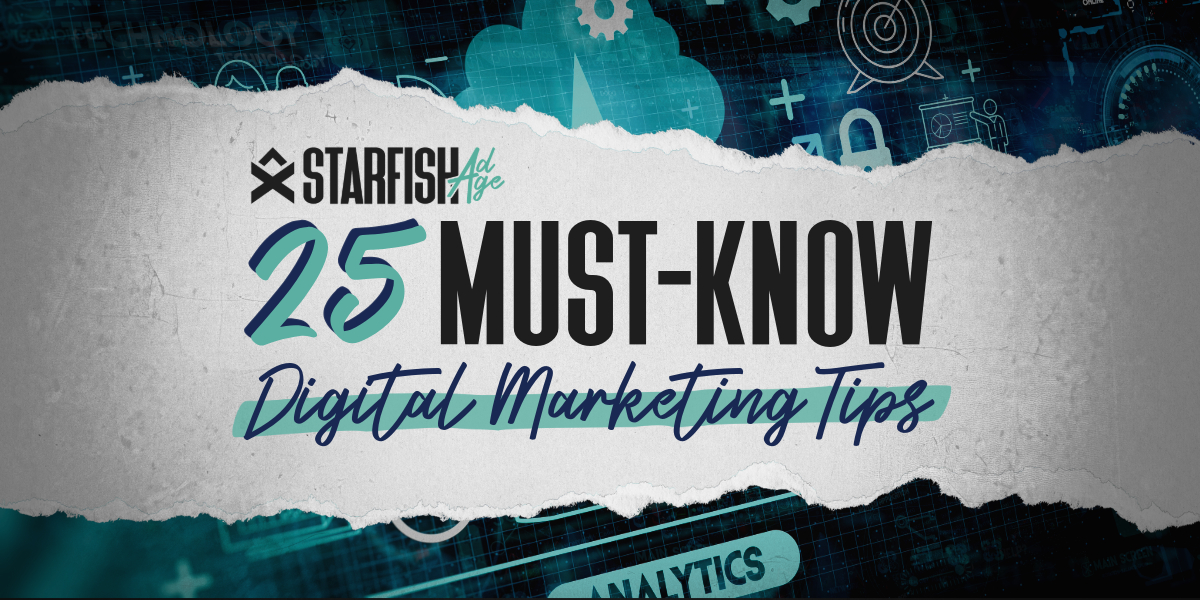
What Is The Future Of Email Marketing
Email marketing has been a powerful tool for businesses for decades. Choosing the right email marketing service can optimize strategies and gauge campaign performance effectively.

What is SEO in digital marketing? SEO stands for search engine optimization, a process that aims to improve a website’s visibility on search engine results pages (SERPs) to drive organic traffic. By optimizing various aspects of a website, businesses can attract more visitors from search engines like Google and Bing. Effective SEO helps websites rank higher in search results, making them more likely to be seen by potential customers.
SEO encompasses a wide range of practices and techniques designed to enhance a website’s performance. These practices include optimizing website content, improving site architecture, and earning backlinks from reputable sources.
SEO, or search engine optimization, is a process aimed at improving a website’s visibility on search engine results pages (SERPs) to drive organic traffic. It involves optimizing various aspects of a website, such as content, technical elements, and external links, to rank higher in search results and attract more visitors.
SEO is important for increasing your website’s visibility, which can lead to more traffic and potential conversions. It also builds trust and credibility for your brand, provides a better user experience, and offers a cost-effective marketing strategy compared to paid search. By focusing on SEO, businesses can achieve sustainable growth through organic search results.
Search engines use algorithms to deliver the most relevant results to users. They employ web crawlers, also known as spiders, to scan and index the content on the internet. These crawlers follow links from one page to another, creating a vast index of web content that search engines can query. Pages are then ranked based on various factors, including relevance, quality, and keyword usage.
On-page SEO involves optimizing individual web pages to rank higher and earn more relevant traffic. Key components include:
Content Quality: Ensuring the content is informative, engaging, and valuable to users.
You can measure the success of your SEO efforts by tracking various metrics using tools like Google Analytics. Key metrics to monitor include:
Conversion Rate: The percentage of visitors who take a desired action, such as making a purchase or filling out a form. Analyzing these metrics helps you understand the effectiveness of your SEO strategy and identify areas for improvement.
SEO is important in digital marketing as it helps increase a website’s visibility, leading to more traffic and potential conversions. It also builds trust and credibility for your brand. A well-optimized website provides a better user experience, making it easier for visitors to find the information they need. When users consistently find valuable and relevant content on your site, they are more likely to trust your brand and become loyal customers.
SEO is a cost-effective marketing strategy compared to paid search. While it requires an initial investment of time and resources, the long-term benefits of increased organic traffic can far outweigh the costs.
Search engines rely on complex algorithms to deliver the most relevant results to users. Understanding these algorithms is key to optimizing your site effectively. Search engines like Google use web crawlers to scan and index the content on the internet, ranking pages based on relevance and quality. These algorithms consider various factors, including keyword usage, site structure, and user engagement metrics.
The better a website aligns with these ranking factors, the higher it will appear in search engine results pages (SERPs). Regularly updating and optimizing your site according to the latest SEO best practices can help maintain and improve your rankings. Staying informed about changes in search engine algorithms and adapting your SEO strategy accordingly will help with sustained success.
Search engine crawlers, also known as web crawlers or spiders, scan and index new web pages and content across the internet, making them available in search results. These crawlers follow links from one page to another, building a vast index of web content that search engines can query. Ensuring that your website is easily crawlable by search engines is a fundamental aspect of technical SEO.
To improve crawlability, webmasters should create a clean and well-organized site structure, use XML sitemaps, and ensure that important pages are not blocked by robots.txt files. Monitoring crawl reports in tools like Google Search Console can help identify and resolve any issues that might prevent search engine crawlers from accessing your content effectively.
SERPs display the results of a user’s query, including organic search results, paid search results, and other relevant content such as images and videos. The position of a web page on the SERP is determined by various factors, including relevance, content quality, and the use of keywords. Achieving a higher position on SERPs can significantly increase the visibility and click-through rate of your website.
In addition to organic results, SERPs often feature rich snippets, knowledge panels, and local listings, providing users with a variety of information at a glance. Optimizing your content to appear in these enhanced search features can further improve your website’s visibility and attract more traffic. Understanding the structure of SERPs and how different elements contribute to user experience is essential for effective SEO.
On-page SEO focuses on optimizing individual web pages to rank higher and earn more relevant traffic. This includes elements like title tags, meta descriptions, and content quality. Ensuring that each page of your website is optimized for search engines can significantly improve your rankings. Effective on-page SEO involves a detailed approach to every component of a web page.
A well-optimized page not only appeals to search engines but also provides a better experience for users. By using relevant keywords naturally within your content and maintaining high-quality, informative, and engaging copy, you can enhance user satisfaction and increase the likelihood of achieving higher rankings. Refining on-page elements based on performance data and SEO best practices is key to sustained success.
Title tags are essential, as they tell both search engines and users what a web page is about. They should be concise, relevant, and include target keywords. A well-crafted title tag can improve click-through rates from SERPs and make your page more attractive to searchers. It serves as the first impression of your web page in search results.
To create effective title tags, ensure they are unique for each page and accurately reflect the page’s content. Avoid keyword stuffing and keep the title within the recommended length to prevent truncation in search results. Reviewing and optimizing title tags can help maintain their effectiveness and align with changing search trends.
Meta Descriptions

Meta descriptions provide a brief summary of a web page’s content. A well-crafted meta description can improve click-through rates from SERPs by providing a clear and compelling reason for users to click on your link. While meta descriptions do not directly impact rankings, they play a significant role in attracting users to your site.
To write effective meta descriptions, focus on creating informative and engaging summaries that include relevant keywords naturally. Keep the descriptions within the recommended length to ensure they are fully displayed in search results. Updating meta descriptions to reflect the content accurately and highlight any new or important information can enhance their impact.
Keyword research is vital for on-page SEO. Using relevant keywords helps search engines understand the content of your web pages and match them with user queries. Strategically placing these keywords throughout your content can improve your page’s visibility. However, it is important to use keywords naturally to maintain readability and avoid penalties from search engines.
Incorporating keywords into headings, subheadings, and body content can enhance your page’s relevance. Additionally, using related terms and phrases can help capture a broader range of search queries. Reviewing and updating your keyword strategy based on performance data and search trends can help keep your content relevant and competitive.

Technical SEO involves optimizing the technical aspects of your website to improve its search engine rankings. This includes site speed, mobile-friendliness, and structured data. Ensuring your website is technically sound is essential for both the user experience and search engine indexing. Technical SEO lays the foundation for all other SEO efforts.
Improving technical elements can enhance your site’s performance, making it more accessible and enjoyable for users. This includes optimizing images, using efficient coding practices, and ensuring fast loading times. A well-optimized technical foundation supports other SEO strategies and helps your site achieve and maintain higher rankings.
Technical optimization ensures that search engines can crawl and index your site efficiently. This includes creating a clean, well-structured site architecture and using proper coding practices to improve site performance. By addressing technical issues, you can enhance your website’s functionality and user experience.
Technical optimization also involves implementing security features like SSL certificates to ensure a secure browsing experience. Auditing your website for technical issues and making necessary improvements can help maintain optimal performance and prevent potential ranking drops due to technical problems.
With the increasing use of mobile devices, mobile-friendliness is a significant ranking factor. Ensuring your site is mobile-friendly improves user experience and search rankings. A responsive design that adapts to different screen sizes can enhance usability and accessibility for mobile users.
To achieve mobile-friendliness, optimize your website’s layout, fonts, and images to ensure they display correctly on various devices. Additionally, prioritize fast loading times and intuitive navigation to provide a seamless mobile experience. Regularly testing your site on different mobile devices can help identify and address any issues.

Off-page SEO refers to actions taken outside your website to impact your rankings within search engine results pages. This primarily involves link-building. Building high-quality backlinks from reputable sites can significantly boost your site’s authority and improve its rankings. Off-page SEO complements on-page efforts by enhancing your site’s credibility and reach.
Link building is the process of acquiring quality backlinks from other websites. Backlinks act as votes of confidence and can significantly boost your search engine rankings. Engaging in ethical link-building practices, such as guest blogging and partnerships, can help increase your site’s authority.
Guest blogging is a popular method of building backlinks. By contributing content to other websites, you can earn valuable backlinks and increase your site’s authority. Additionally, guest blogging can help you reach a wider audience and establish your expertise in your industry.
To maximize the benefits of guest blogging, focus on creating high-quality, relevant content that provides value to the host site’s audience. Building relationships with reputable blogs and websites can lead to more opportunities for guest posts and further enhance your backlink profile.

Local SEO focuses on optimizing your online presence to attract more business from relevant local searches. It’s essential for businesses that serve specific geographic areas. Optimizing for local search can help you appear in local search results and attract nearby customers.
Local SEO involves various strategies, such as creating and optimizing a Google My Business profile, gathering positive reviews, and using local keywords.
Local SEO helps businesses appear in local search results, making it easier for nearby customers to find and engage with your business. This involves optimizing your Google My Business profile, gathering positive reviews, and using local keywords.
By appearing in local search results, businesses can attract more customers from their immediate vicinity. This is especially important for service-based businesses and brick-and-mortar stores. Effective local SEO can lead to increased visibility, customer engagement, and sales.
Optimizing for local search involves creating and optimizing a Google My Business profile, gathering positive reviews, and using local keywords. These actions can improve your visibility in local search results and attract more customers from your area.
To optimize for local search, ensure that your business information is accurate and consistent across all online platforms. Encourage satisfied customers to leave positive reviews and respond to them promptly. Using local keywords in your content and metadata can also enhance your local search presence.

Content marketing and SEO go hand in hand. High-quality, relevant content can attract organic traffic, engage visitors, and encourage them to share your content. A well-executed content marketing strategy can support your SEO efforts by providing valuable information to your audience.
Creating informative and engaging content that addresses your audience’s needs and interests can improve your site’s visibility and search engine rankings.
Creating relevant content that addresses your target audience’s needs and interests is essential. This helps improve your site’s visibility and search engine rankings. Focus on producing content that provides value and answers common questions or solves problems for your audience.
To create effective content, conduct thorough keyword research to understand what your audience is searching for. Use this information to guide your content creation efforts and ensure that your content aligns with user intent.
While keywords are important, overusing them (keyword stuffing) can harm your rankings. Focus on natural, readable content that provides value to users. Keyword stuffing can lead to penalties from search engines and a poor user experience.
Instead of keyword stuffing, use keywords strategically and ensure they fit naturally within your content. Incorporate related terms and phrases to enhance relevance without compromising readability. Regularly reviewing and optimizing your content can help maintain its effectiveness and appeal.

To measure the success of your SEO efforts, you need to track various metrics and use tools like Google Analytics to gain insights. Monitoring your performance can help you identify areas for improvement and make data-driven decisions.
Key metrics to track include organic traffic, keyword rankings, and user engagement. By analyzing these metrics, you can understand how well your SEO strategy is working and identify opportunities for optimization.
Google Analytics helps you understand how visitors interact with your site, which keywords are driving traffic, and how your SEO efforts are performing. Analyzing this data can provide valuable insights into your audience’s behavior and preferences.
Using Google Analytics, you can track various metrics such as page views, bounce rate, and conversion rate. This information can help you identify which pages are performing well and which need improvement.
Monitoring your organic traffic is important to determine if your SEO strategies are effective. Look for increases in organic traffic over time. Analyzing traffic patterns can help you understand the impact of your SEO efforts and identify opportunities for optimization.
Tracking organic traffic involves using tools like Google Analytics to measure the number of visitors coming to your site through organic search. Comparing this data over different periods can help you assess the effectiveness of your SEO efforts and make necessary adjustments to improve performance.
An effective SEO strategy involves a combination of on-page, off-page, and technical SEO techniques tailored to your business goals. A well-rounded strategy can help you achieve sustainable growth and long-term success.
Developing an SEO strategy starts with setting clear goals and objectives. These goals should align with your overall business objectives and be measurable. Once your goals are set, you can develop a plan to achieve them, incorporating various SEO techniques and best practices.
Setting clear, achievable SEO goals is the first step in developing an SEO strategy. This could include increasing organic traffic, improving search engine rankings, or boosting conversions. Defining your goals can help you stay focused and measure your progress.
Your SEO goals should be specific, measurable, achievable, relevant, and time-bound (SMART). This approach ensures that your goals are realistic and can be tracked over time.
Using SEO tools like keyword planners, backlink checkers, and site audit tools can help you implement and refine your SEO strategy. These tools provide valuable insights and streamline the optimization process.
SEO tools can help you identify opportunities for improvement, track your progress, and measure the impact of your efforts. By leveraging these tools, you can make data-driven decisions and continuously optimize your SEO strategy for better results.

SEO is vital for any business with an online presence. It helps you reach your target audience, drive organic traffic, and achieve your business goals. Investing in SEO can lead to long-term growth and increased visibility. A strong SEO strategy can enhance your website’s visibility in search results, making it easier for potential customers to find your business.
SEO helps improve your website traffic by making your site more visible to search engines and users. Higher visibility can attract more visitors and potential customers. By optimizing your site for relevant keywords, you can drive targeted traffic to your site.
Increased website traffic can lead to higher engagement, more leads, and ultimately more sales. Regularly monitoring and optimizing your SEO efforts can help you maintain and grow your website’s traffic over time.

Email marketing has been a powerful tool for businesses for decades. Choosing the right email marketing service can optimize strategies and gauge campaign performance effectively.

Discover successful email marketing strategies to boost engagement, drive conversions, and grow your business with impactful campaigns.

Discover the basics of marketing automation and how it helps businesses save time, streamline campaigns, and boost results.

Discover the importance of lead generation for boosting business growth, building connections, and driving long-term success.

Explore the differences between traditional and digital advertising. Learn which strategy is best for your business, from broad reach to targeted campaigns.

Use LinkedIn’s new video feed to grow your audience. Learn specs, best practices, and tips for creating engaging posts to boost your visibility on LinkedIn.

How major social media legal battles in 2024, including Supreme Court rulings and the Kids Online Safety Act, are impacting businesses and digital marketing.

Discover 10 iconic brands like Blockbuster, Kodak, and Toys “R” Us that went extinct because they failed to innovate.

Gen Z Marketing That’s Breaking The Internet: Discover how Gen Z marketers use bold, unpredictable strategies to capture attention.

Learn how AI tools improve customer experience, streamline operations, optimize marketing, and reduce operational costs.

Discover how AI transforms digital marketing through automation, personalized strategies, and data-driven insights.

Discover five powerful strategies for building brand awareness, from partnerships and influencer marketing to social media and SEO.

Get the latest insights on Google’s ad tech monopoly trial and how it could reshape digital advertising, competition, and your ad strategies moving forward.

Follow TikTok’s legal battle against the ban and learn how it could affect creators. Get the facts and understand the potential future of the platform.

A few of the most significant marketing mistakes we’ve seen in 2024 so far, why they happen, and simple ways to avoid them to keep your campaigns on track.

Explore key strategies in our 2024 Digital Marketing Guide. Learn to understand your audience, build an online presence, and optimize for business growth.

Discover 25 essential digital marketing tips for small businesses. Boost your online presence, attract customers, and drive sales with proven strategies.

14 Essential Digital Marketing Solutions to Boost Your Business Growth

Learn about SEO, PPC, social media marketing, content marketing, and more to drive traffic and conversions. Read now!

Learn how to select the best digital marketing agency for your small business, the benefits of hiring an agency, and tips for maximizing your online presence.

Learn how to leverage TikTok advertising, ad formats, targeting options, and best practices to increase brand awareness, and drive sales.

Learn about Connected TV (CTV) ads, their benefits, and how they work. Understand programmatic CTV advertising for effective digital marketing campaigns.

Discover the benefits of programmatic advertising, an automated method of buying digital ad space that enhances targeting, efficiency, and campaign performance.

Learn how to advertise on Google effectively. The basics of Google Ads, from setting up your account to targeting your audience and driving qualified traffic.
All Rights Reserved | Starfish Ad Age LLC | 2023 | Privacy Policy